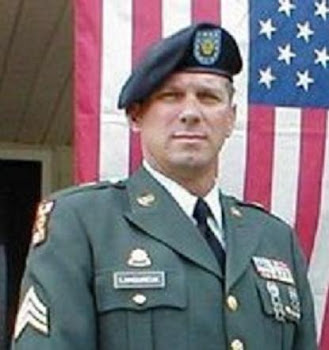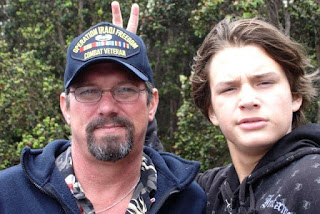In upward spiraling numbers, Veterans are becoming entwined in the criminal justice system. Veterans who previously had never had a brush with law enforcement are facing lengthy prison sentences. Some are facing the rest of their lives behind bars.
Without understanding combat related Post-Traumatic Stress Disorder, people will say they are criminals, they don’t deserve special treatment. They broke the law and have to pay the price. The American public may not understand the price they paid – but our government, the VA, and the DoD know the price they have paid – and that it is a very high price.
They have returned home from combat with the invisible wounds of war, and have scars that they will carry for the rest of their lives.
When a Veteran is arrested and detained, they immediately lose benefits before they are convicted of anything.1
1) All physical and mental healthcare treatment privileges from the VA are lost.
2) All medications previously prescribed by VA providers are discontinued.
3) The Veteran becomes the responsibility of the institution or other government agency by which they are detained.
(NOTE: Combat related conditions are “pre-existing” and that agency will not actually accept responsibility, but neither will the VA.)
To punish an individual, any individual, before they are convicted in a court of law is a violation of the Constitution of the United States of America. To punish a Veteran before they are convicted in a court of law essentially makes that Veteran a Prisoner of War.
“Bailing out” our Veterans should take precedence over “bailing out” mismanaged financial entities.
“The most important step in healing Post Traumatic Stress Disorder is seeking continuity of care”, Army Col. (Dr.) Augustin Gomez stated on November 6, 2008, speaking from Joint Base, Balad, Iraq. Col. Gomez, is a psychiatrist with the Army’s 1835th CSCT who specializes in treating PTSD.2 When a Veteran is arrested and detained, continuity of care is lost.
It is well documented that incarceration causes PTSD. A Veteran will not receive the proper treatment for PTSD during incarceration. Being incarcerated is a traumatic event, and a lengthy incarceration will seriously exacerbate PTSD symptoms and cause the person's level of functioning to deteriorate.3
The Veterans Healthcare Administration has launched Healthcare for Re-Entry Veterans (HCRV), a program designed to address the community re-entry needs of incarcerated veterans.4 Given that it is well documented that prison causes PTSD, the rate of recidivism will likely be high.
If a Veteran is convicted, the family suffers the loss of income supplied by the Veteran’s Disability Compensation. The VA requires the family file a hardship. In this economy, the loss of any income is a hardship. The family will again be caught up in further bureaucratic red tape from the Veterans Administration already experienced while trying to obtain the benefits their Veteran deserved.
Is this how we thank our Veterans? Is this how we thank their families?
Most of these Veterans are not of dubious character or background. Our Government must take immediate and aggressive actions to address the treatment Veterans are receiving in our judicial system. Our elected officials must pass legislation to give first time Veteran offenders “a second chance”.
Give them in-patient treatment instead of incarceration. Give them probation instead of prison. Isn’t intervention and rehabilitation a better answer than incarceration? A Veteran’s life could be saved.
Our Veterans deserve special treatment in the criminal justice system. “Support our Troops” must also encompass when they fall into trouble with the law. They served our country when they were called to war, and we must stand by them when they need our support in their times of trouble.
Our judicial system and the VA must work together to better serve our Veterans who are in trouble. All branches of law enforcement must be trained to effectively intervene in crisis situations involving a Veteran.
One episode in a Veteran’s life, does not define the Veteran.
- - - - - - - - - - - - - - - - - - - - - - - - - - - - - - - - - - - - - -
REFERENCES:
1 Department of Veterans Affairs, Incarcerated Veterans, Compensation and Pension Service, October 2008
2 Airmen, Soldiers work together to save lives at Joint Base Balad hospital by Staff Sgt. Don Branum, 332nd Air Expeditionary Wing Public Affairs, http://www.army.mil/-news/2008/11/06/14021
3 PTSD and Criminal Behavior, Claudia Baker, MSW, MPH and Cessie Alfonso, LCSW, Department of Veteran Affairs, National Center for Post-Traumatic Stress Disorder. mailto:%20ncptsd@va.gov
4 Homeless Veterans, Department of Veterans Affairs, Incarcerated Veterans Re-Entry Services and Resources
(click below to post a comment)




No comments:
Post a Comment